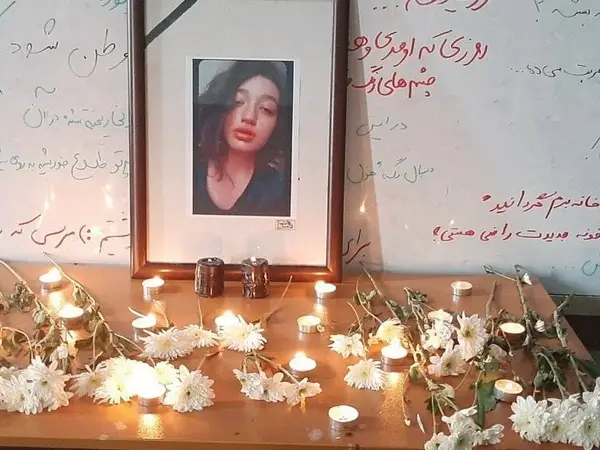While protests continue across Iran, the Islamic Republic’s Judiciary says it has indicted over 1,000 people who were arrested during the demonstrations.
Intensifying efforts to quash the seven-week-old protests, ignited by Mahsa Amini's death in police custody, the hardline judiciary announced on Monday that it will hold public trials for about a thousand of the detainees. However, public trials do not necessarily mean fair trials, as the Islamic Republic routinely denies people the right to choose their own defense attorney and withholds case information from them.
According to Tasnim news agency, affiliated with the Revolutionary Guard, Tehran's chief justice has said these people “have carried out acts of sabotage in recent events, including assaulting or killing security guards, (and) setting fire to public property." The report added that the trials would take place in a Revolutionary Court and are scheduled for this week.
It was not immediately clear if the 1,000 indictments announced on Monday included 315 protesters that the state news agency IRNA reported charged in Tehran on Saturday. At least five of them are accused of capital offences.
In a video shared on social media on Monday, the mother of 22-year-old Mohammad Ghobadlou said her son had been handed a death sentence two days ago in an initial court hearing, describing the verdict as unfair and appealing for help. She said that he was tried and "sentenced to death" in a session without the presence of his family and lawyer, adding that the authorities want to execute him as quickly as possible.
The judiciary claims that Ghobadlou "killed an officer and injured several others" by running over the officers with his car during protests.
The judiciary has recently charged several arrested protesters with "corruption on earth," which is tantamount to a death sentence in the Islamic Republic.
The public trials are meant as a threatening message to people, whose antigovernment protests are growing as they have started holding 40th-day mourning ceremonies for those who were killed in the protests, a culturally important tradition.
On Saturday, Commander of Iran’s Revolutionary Guard Hossein Salami threatened people not to take to streets anymore saying that Saturday was the last day of protests.
Protests Continue On Monday
Despite a deadly crackdown – which has claimed the lives of nearly 300 protesters so far – and the regime’s psychological operation to intimidate the people, the protests are raging on a daily basis, with morning gatherings at university campuses and evening rallies in streets and neighborhoods.
The US-based Human Rights Activists News Agency (HRANA) said on Saturday at least 283 protesters have been killed in the unrest, including 44 minors. Some 34 members of the security forces were also killed.
Videos posted on social media on Monday showed several rallies at universities in Tehran, Tabriz, Sanandaj and other cities, with slogans against the regime as well as the security forces.
In Tabriz University of medical sciences, students chanted an increasingly popular protest slogan directed at the Iranian ‘morality police,’ calling them perverts. “I am a free woman!” they chanted.
Among the most retweeted reports Monday was the open letter of resignation by the vice-chancellor of Bushehr Dental School in southern Iran. He said that he can no longer protect students “whose lives have been entrusted to us.” Students also held a sit-in in support of their classmates who have been arrested in the past few weeks.
Protesters also began to gather in the streets of different cities, angered by the deaths of several teenage girls reportedly killed while demonstrating.
Monday marked the 40th day after the death of 16-year-old Sarina Esmailzadeh, a victim of the protests that authorities claim she jumped from a neighbor’s rooftop and killed herself and her death was unrelated to protests.
The 16-year-old YouTuber died on the way to hospital after being severely beaten in the head with batons while protesting the killing of Mahsa Amini. She had joined a protest in Karaj, a large city half an hour from the capital Tehran, on September 21. Her injury and death were verified by Amnesty International.
Her friends and classmates held a vigil for her in the classroom and wrote some of her statements from her videos on social media on the board.
Tehran residents held a protest at one of the most crowded subway stations, chanting “Death to Dictator,” referring to the Islamic Republic’s ruler Ali Khamenei.
